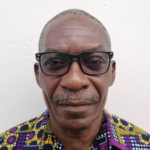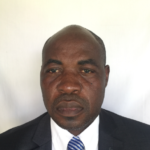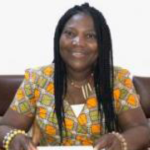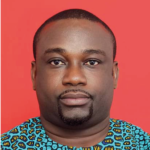CALL FOR SOLUTIONS
LOOKING FOR HEALTH SOLUTIONS FOR GHANA, FROM THE PEOPLE. hEALTHIER LIVES!
Apply by 31 DECEMBER 2020!
LOOKING FOR HEALTH SOLUTIONS FOR GHANA, FROM THE PEOPLE. hEALTHIER LIVES!
Apply by 31 DECEMBER 2020!




The School of Public Health, University of Ghana wishes to inform the university community about the introduction of its new project – Social Innovation in Health Initiative (SIHI). The purpose of the project is to identify and enhance innovative programmes designed and implemented by individuals, organisations, and institutions that seek to improve health care delivery through research, capacity building and advocacy. SIHI-Ghana aims at giving a wider publicity to such useful innovations to enhance their uptake for health care delivery in the country.
SIHI-Ghana was launched in early 2020 in partnership with Makerere University College of Health Sciences, School of Public Health in Uganda and Nnamdi Azikiwe University in Nigeria. This partnership is spearheaded by the TDR, the Special Programme for Research and Training in Tropical Diseases. SIHI-Ghana is hosted by the TDR Africa Training Center at UG’s School of Public Health.
This second innovation call is open to individuals, organisations, institutions/entities whose project/programmes bring innovations in healthcare delivery in Ghana. Those who submitted their social innovations during the first innovation call in July 2020 and were not selected are eligible to resubmit.
We are looking for solutions created with people and implemented with their participation. These solutions must increase the capacity of people. We are not looking for scientific solutions such as drugs or advanced medical devices.
We are looking for individuals – health workers, students, citizens, entrepreneurs – or organisations – NGOs, companies, universities, hospitals government departments who have developed a creative solution to a problem in healthcare delivery.
Solutions could be a new service, products, practice, process and policies.
You may not think your work is innovative, but if it is addressing a problem in a different way and making an impact, then your solution is innovative!
Your solution is eligible if it meets the following conditions:
Primary health care
Access to health and inclusive care
Quality
Affordability
Contributing to health-related SDGs
Ghana
Operational for more than a year. We are not looking for new ideas but existing solutions.
The solution is not a medical or scientific innovation (drugs, devices, etc) as we don’t consider this social innovation. Read more about what is social innovation.
The application has been fully completed. All incomplete forms will be excluded).
Call Opens
Call Closes
External Panel Review Decision
Top Solutions Announced
Your solution can help improve the healthcare system in Ghana and other nations. Imagine what we can achieve together.
You can benefit in several ways:
Recognition - Be recognised both locally and internationally. By submitting your innovation, you will have the opportunity to showcase your innovation(s) at events at the regional, national, and global platforms.
Documentation - You will have innovation showcased at the global level.
Sharing and Network - You will be part of regional and global network activities. The network offers opportunities for joint publication with colleagues from other parts of the world.
Learning – You will be invited to attend various workshops and learning sessions for innovators. You will have the opportunity to participate in conference and seminars organized at local and international level to learn from other social innovators.
Training - You will also have the opportunity to participate in all social innovation training as either a participant or a facilitator depending on the type of training.
All eligible solutions will be submitted to the expert review panel and each solution will be reviewed by at least two members of the panel according to the following criteria:
The approach addresses a healthcare delivery challenge that specifically deals with an infectious disease of poverty or could be applicable to this disease group.
The approach is new, different or a significant improvement within the context to which it is being applied.
The approach has the potential to be used by a large number of people, enhancing equity and access.
The solution is affordable by the poor who are otherwise excluded in the local context or the solution is more cost-effective than the status quo.
The solution has a demonstrated positive outcome on the health of the local population.
Within and across cultural, resource and environmental contexts, the solution can be applied to reach many more people.
The financial, organizational and market aspects of the solution are sustainable.

Prof. Moses Kweku Sekyi Aikins has a PhD in Health Economics (1995) and a Diploma in Public Health and Policy (1996) from the London School of Hygiene and Tropical Medicine, London. Worked as an Assistant Economic Planning Officer, Ministry of Finance and Economic Planning, Ghana (1984 – 1990); Social Scientist, Gambia’s Medical Research Laboratories, The Gambia (1989 – 1995); Head, Research, Monitoring and Evaluation Unit, Ghana Population Council Secretariat, Ghana (1996 – 1997); Senior Consultant, JSA Consultants Ltd, Accra (1997 – 2000, 2002 – 2006); and Technical Officer, WHO (2000 – 2002). He joined the School of Public Health in 2007 after a year part-time teaching.

Professor Philip B Adongo is the immediate Head, Department of Social and Behavioural Science, School of Public Health – University of Ghana. He also holds an Adjunct appointment at the Heilbrunn Department of Population and Family Health, Mailman School of Public Health, Columbia University, New York. He was appointed Erasmus Mundus Scholar in International Health at the University of Copenhagen, Denmark. Prior to joining the University of Ghana, School of Public Health, he worked as Principal Research Fellow at the Navrongo Health Research Centre. Professor Adongo research work spans the domains of health system research, implementation research, Communicable and non-communicable disease research, Maternal, Child and Reproductive health, Health Education and Communication, Medical Anthropology and Ethnography.

Dr. Patricia Akweongo is a Senior Lecturer in the Department of Health Policy Planning and Management School of Public Health-University of Ghana where she teaches a number of courses at the PhD and Masters level and does administration, supervision and research. She is currently the Head of Department for Health Policy Planning and Management.
Patricia’s research work and experience has been in the areas of health systems governance of social protection programmes, health systems strengthening, community engagement and empowerment, economics of health care, malaria, equity and access to health care, sexual and reproductive health, health system and health policy, Human Resource management and management strengthening, gender and cultural studies, violence, socio-economic issues on meningitis, economic evaluation, epidemiology of communicable and non-communicable diseases, etc. She has several peer review publications to her credit.

Dr. Glozah is a Health Psychologist in the Department of Social and Behavioural Sciences, School of Public Health. He has several years of teaching experience in higher education and prior to joining the School of Public Health had held various academic positions including Campus Director, Head of Department and Dean of Faculty. Franklin has supervised several undergraduate and postgraduate dissertations and theses and has served as an internal examiner for over 30 Master’s theses. He is an enthusiastic researcher with quality peer reviewed articles published in internationally reputable journals and serves as a reviewer for renowned journals such as the Journal of Health Psychology and the Journal of Adolescence. Franklin is an Approved Researcher under the Office for National Statistics (ONS), UK.
There are many ways in which you can apply. Choose the way that is best for you.
DOWNLOAD THE FORM
Download the form here and email it to us at ghana@socialinnovationinhealth.org
GET AN APPLICATION FORM FROM OUR OFFICE
African Regional Training Centre supported by WHO/TDR, SPH Room 11, at the University of Ghana School of Public Health, Legon.
Only proposals submitted using the form on the dates specified in this call will be considered.